It’s been a tough 18 months for startup founders looking to go global. Like many heading overseas for business or holidays, they probably have thousands of dollars in credits sitting in their frequent flyer account, pondering how far into the future it will be before that can redeem that cash.
But life and business has gone on, with many ventures expanding rapidly despite the havoc Covid-19 lockdowns and border closures have caused.
Startup Daily decided to check in with several founders to see how they’ve tackled international expansion when they’ve only met their offshore teams and investors via video call.
We asked them a series of questions around whether border closures slowed or sped up their offshore plans, how it feels to launch an office via Zoom, tackling trust in staff you’ve never met, and what it’s been like dealing with global investors.
We wanted to understand how they thing about growing their startup in challenging times.
Here are their insights:
Gemma Lloyd
CEO and co-founder, Work180
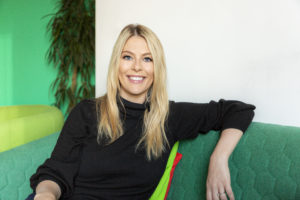
Gemma Lloyd
We’re still focused heavily on our growth in the UK and US – Covid-19 has not changed our expansion plans.
Women have been the hardest hit by the pandemic – it has left more women unemployed than men and has brought attention to the unfair burden placed on women at home – so our platform is more important than ever.
We are seeing this as a chance to fast-track gender equality in the workplace and companies that genuinely care are working with us to double down on their DEI initiatives.
One of the reasons we haven’t been impacted is that we have an entirely remote workforce at WORK180 with team members located across Australia, the UK and US – we’ve never had a physical office.
The key to successful remote working and building trust with teams is communication and ownership. As a leader, it’s important to set clear expectations up front and then trust your teams to do the work. As a team member, over-communication can be a good thing – e.g. sending project updates more regularly than you usually would.
We find that the people that work best remotely are those who own their work and have a sense of pride in what they do.
My advice for expanding abroad really feeds into the same advice I would give to founders managing remote teams. There is a direct link from diversity and inclusion to mental health and wellbeing, and because COVID-19 is so difficult for employees, that inclusion piece is particularly important.
Companies that improve their DEI policies during COVID will see happier, productive and more engaged teams.
Remote and flexible work also go hand in hand. Companies that understand the benefits of allowing teams to work remotely also understand that supporting flexible work times, enabling school runs or other non-work demands and giving staff autonomy increases productivity and loyalty.
Tim Fung
Co-founder & CEO, Airtasker
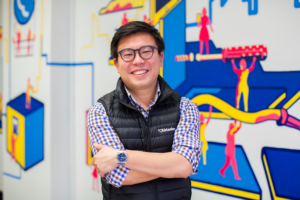
Airtasker CEO TIm Fung
While stay-at-home orders have impacted some service categories, our global community has been truly resilient during the pandemic with many local service providers innovating and adapting with virtual and remote solutions.
We’ve seen a pivot towards these virtual solutions and greater demand from local service providers. In the past 6 months, nearly 10,500 Brits have joined as service providers with registrations up 369% in July compared to February 2021. With London opening up again, we expect this growth to continue.
Following a $20.7m capital raise and our acquisition of US-based local services marketplace Zaarly in May this year, we’re committed to our expansion plans in both the US & UK markets.
In the US, we’ll focus our efforts in Kansas City, Dallas and Miami with a view to launching more city-level markets later this year. We’re keeping a close eye on Covid-19 numbers in each of these markets (particularly with local cases recently rising in Florida), but we don’t anticipate the pandemic will impact our long-term growth.
Border closures and lockdowns hit the UK hard early on where we saw a short-term impact on marketplace activity, but the UK market quickly bounced back and since then we’ve seen really positive signals on the platform.
Airtasker has played a key role in supporting people who may have been furloughed or faced reduced hours due to the pandemic, so there’s been a real opportunity to empower people to monetise their skills during this time.
With the Zaarly acquisition in May this year, Zaarly founder Bo Fishback and a team of highly experienced US marketplace operation experts have joined the Airtasker team.
While the time difference has been tricky to manage at times, the US team is already doing awesome work and I’m so excited for them to help us take Airtasker Stateside.
Having an experienced team on the ground means we can leverage their deep local insights to ensure we’re taking a highly tailored approach with our strategy and adding real value for our US community.
Sam Pratt
CEO, Render
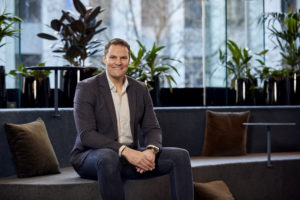
Render CEO Sam Pratt
If anything, the uncertainty has accelerated our US expansion out of necessity. We had Render people in the US pre-COVID, and the aim was always to grow the team in 2020.
Initially the strategy was to maintain the bulk of operations in Australia and move Aus-based team members over to drive growth, yet due to the uncertainty, we had to move early and bring on a larger and more self-sufficient US team to compensate, resulting in US headcount growing from 2 to 10 over the past 12 months.
Wherever possible, it’s imperative to spend significant time on the ground with customers, prospects and the industry in those early years and get a real feel for the industry and your place in it.
Early customer relationships form the foundation of your brand and, especially in the enterprise SaaS space that we play in, customer advocacy is essential to credibility, and to cultivating consideration in the market.
We are fortunate to have entered the US well ahead of the pandemic, doing stints there and travelling relentlessly for two-and-a-half years, so the industry knew who we were and what we stood for.
It’s those relationships that carried us through and enabled us to continue building throughout 2020.
John de la Motte
CEO & co-founder, Compass
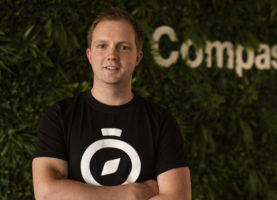
Compass founder John de la Motte
Photo: Josh Robenstone
We were fortunate to have a number of international teams in place ahead of lockdown, which has allowed us to continue to scale in those markets.
The restrictions on travel have slowed down some plans, however, we have been able to accommodate most initiatives virtually – be that requiring some Zoom meetings at odd hours.
We’re comfortable with the process of interviewing via Zoom. We’re on a big push for team autonomy and building a high trust organisation – Covid has probably accelerated this for us.
We haven’t done any virtual office inspections, we’ve fortunately had people in the local jurisdictions who have been able to lead these initiatives. Offices vary dramatically between regions for us, so having the local teams involved in their selection and launch works well for us.
Capital and investment markets have adapted very well to the virtual model. While in-person discussions definitely have their benefits, you can now do a discussion with US firms in the morning (about 3pm their time) and at lunchtime be in discussions with ANZ teams, with calls to the UK from 5.30pm.
Everyone is fatigued, however puts on a smile and some entertaining virtual backgrounds of where they may rather be.
Overall, interest in high growth tech businesses remains strong and where a business can demonstrate resilience during Covid, I don’t think the switch away from in-person to virtual has impacted M&A.
Aaron Cooper
Co-founder, LivePreso

LivePreso co-founder Aaron Cooper
Despite the effects of lockdowns and global border closures, the sentiment towards a return to BAU is stronger overseas and has led to us casting a wider net than we might have previously. Global markets have opened up earlier than Australia, whereas hesitancy remains in a number of verticals locally, and as a result, we’ve accelerated efforts to build stronger alliances and increase exposure overseas to further build our profile.
The shift to remote working environments has also removed a number of barriers to prospecting overseas, and even resulted in us signing Booking.com as a client in 2020.
We are addressing the needs of our overseas customers most effectively from Australia.
Whether this involves Sales, Customer Success or Product Development – technology has allowed this to occur as our customers need, without having to be located in the same region. Our response times and engagements have ensured that our customers are confident in their investment in LivePreso.
We’ve also been able to remotely hire and onboard a number of team members during the last year with excellent results.
At the moment we’re not actively seeking investment, although we’ve had some discussions during this period as our global profile is growing due to the calibre of recognised brands we are bringing on board. In fact, we’ve received at least 2 personalised enquiries a week from overseas investors, so there hasn’t really been a barrier to contacting us.
Physical location is so much less important now that most meetings are remote anyway. The global shift to technology for communications has definitely made the world feel smaller in a lot of ways.
Kjetil Hansen
CEO, Deliciou

Deliciou CEO Kjetil Hansen
The pandemic hasn’t stopped us expanding globally, we’ve just launched in Whole Foods in the US, but it has changed how we’re doing it.
We’re not just aiming at the “burger” market. We make shelf-stable products, which is important when dealing with aspects of the pandemic like lockdowns where things like food waste are a big issue, and is also good for home cooks to have something in the pantry.
What a lot of people are not aware of is that a material portion of goods are transported in the belly of passenger planes.
Deliciou was serving both the US and European markets shipping via air freight from Australia. When the pandemic hit in late March 2020 the international flights stopped, and we had to change the way we provided our plant-based meat products to the world.
We immediately started sourcing third party warehouses and within 12 months we had launched warehousing operations in the US, EU and UK. Now we are better equipped to scale Deliciou worldwide than ever before. One thing we noticed is that it takes a bit longer to build a relationship virtually. We also use consultants and reputable providers to help with various projects which have been good.
Finally, my tip for other founders: COVID has made supply chain management a lot harder. Make sure you have a strong supply chain before venturing into expansions you cannot keep under control.
Nigel Freeman-Fellowes
CEO & founder, Kanopi
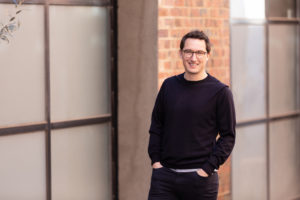
Kanopi founder Nigel Fellowes-Freeman
The ongoing COVID has accelerated plans in some ways but also given some pause for thought about how to do it effectively.
Globally, there’s more market opportunity for insurance than ever before. So our next expansion in the US is well timed. But, we’re being more strategic in how we do it, securing a key partnership ahead of the expansion rather than doing it the other way around.
As for courting future investment abroad, I think most founders will find that not being able to travel abroad won’t be an issue for them. Investors have adapted and doing deals via other channels such as video calls. As long as you are willing to do a video call at an awkward hour then that’s not an issue.
On video calls, we have team members in Singapore and the UK already and we actually found the best way to manage the team abroad was using pre-recorded video rather than awkward hour calls. We supplement this though with a once-a-week all in video meeting.
Credit: Source link


Comments are closed.